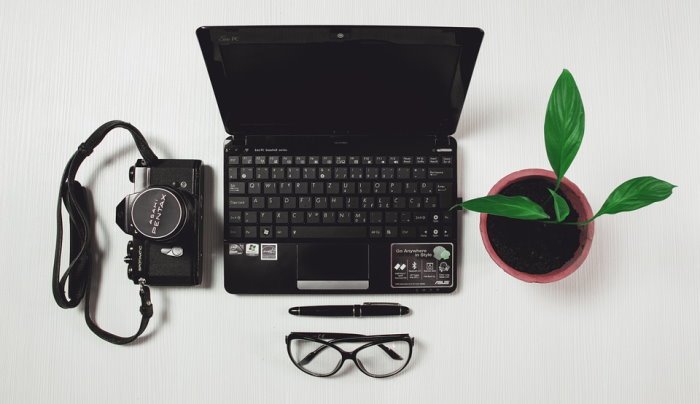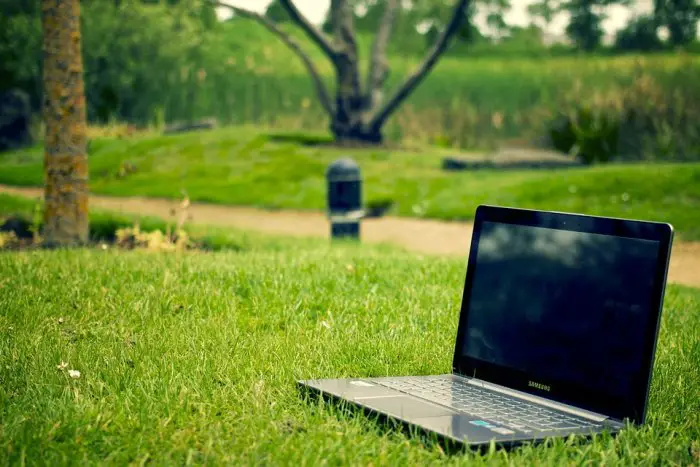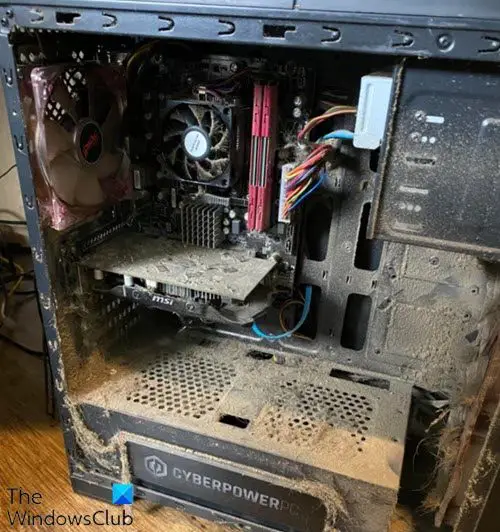The irony of the situation with anything that we buy and find valuable is that most of us do not even bother to read the manuals until something is wrong. We usually turn to the manual, if we can find it, to correct or fix something that went wrong. Manuals usually give the dos and don’ts and ways to make an item last much longer. It is the same with computers too. When there is damage, we look for the manual. There are things that can damage a computer and shorten its life – and if you take precautions, you can prevent damage to the hardware. 
Not reading the manufacturer’s user manual
The manufacturer knows more about your computer than you do and so the user manual is important. From the simple procedure to turn on the computer to the best items to keep it clean are all included in the user manual. The computer’s user manual should be read before the computer is used. It should not be taken for granted that all is known about computers, so the manual isn’t important. There are always advances in computers so there might be something new that needs special attention. PCs may look alike but they may have different specifications and features and needs. You may have similar looking computers, but one might be a slight upgrade, so it might have something slightly different.
Common things that can damage your Computer
Computers do have a life span and will eventually die. However, there are things that if done to a computer will shorten its life. Some things might seem simple and harmless and some may be obvious. A computer is an expensive investment, and all should be done to make sure that it lasts as long as possible.
Let us look at some of the things that can damage your computer and shorten its life:
- Lifting a laptop by the cover
- Leaving the computer exposed to the elements
- Installing unverified software
- No or low maintenance
- Moving the computer with things plugged in and sticking out
- The computer used by underaged or untrained users
- Using cheaply manufactured accessories and peripherals
- Blocked ventilation
- Overlooking warning signs
- Eating around your computer
- Cleaning the computer with a harmful substance
- Using the computer in a dusty area or while cleaning.
1] Lifting a laptop by the cover
A laptop’s lid is not a handle and so it should not be used to lift the laptop. A laptop’s lower half is usually heavier since it holds all the internal components. This will make it very heavy and will damage the hinges if lifted by the cover. Lifting the laptop by the cover could also damage the delicate cables that are attached to the lid. The video cable connects the VGA card to the monitor. In some laptops, the wireless card runs from the bottom of the laptop to the lid of the laptop. Lifting the laptop by the lid could damage the connection. The webcam and microphone are found in the lid of the laptop and these are connected to the lower section of the laptop. Lifting the laptop by the lid will damage the webcam and microphone. The hinges of the laptop could be strained, and the sides of the laptop could be forced open over time. The laptop could also slip and fall when it is lifted by the lid.
2] Leaving the computer exposed to the elements

Computers like other electronics are susceptible to extreme heat and liquids. Most computers are not built to withstand the elements and water, or the sun will damage them. Leaving a computer near a window or outside where the sun or water can catch it will cause it to a malfunction or be severely damaged. Un-tinted glass windows will allow sunlight to enter, and direct sunlight will damage a computer if it is left exposed for long periods.
3] Installing unverified software
Pirated or Unverified software can pose a threat to your computer’s health. The software can be used to hide malicious software and when installed, they could damage your computer. Malicious software can cause your computer to malfunction and even crash. The crash can cause loss of valuable data.
Read: Consequences & Risks of using Pirated & Counterfeit Software.
4] No or low maintenance

Computers require maintenance to keep them running properly and to extend their life. Maintenance is both for hardware and software and should be done regularly. Failure to do maintenance could result in damage to the computer and loss of data.
- Software maintenance includes updates to software, scanning for malicious software, defragmenting drives.
- Hardware maintenance includes cleaning the outside of the computer, cleaning dust from the inside of the computer. A buildup of dust and lint can cause blocked ventilation and overheating.
Most of these are preventative maintenance, they should be done before problems develop. Users should also get familiar with the sounds and actions of their computer, anything that sounds out of place or any behavior that does not seem normal should be addressed immediately. A computer moving slowly could be a sign of overheating, a buildup of old files or, it could signal the working of malicious software.
Read: Tips to maintain Windows in good running condition.
5] Moving the computer with things plugged in and sticking out
Moving the computer with things plugged in and sticking out could damage the computer and as well as the thing sticking out. You or someone may step on a cord that could damage the port it is plugged into or break the cord. Flash drives left plugged in while the computer is being moved could hit an object and damage the USB port or the flash drive or both. Whenever a computer is to be moved, it is best to unplug all cords and devices.
Read: Is it OK or Bad to place desktop PC on the floor?
6] The computer used by underaged or untrained users
Computers may be very advanced, but they are quite delicate, and precautions should be taken when they are used. To minimize damage to hardware and software, users should be knowledgeable about computer use and care. Underage or untrained persons could severely damage a computer and its content. Laptops have all their components under the keyboard so heavy use or liquids could ruin everything. Underaged or untrained persons could install malicious software accidentally. They may also visit unsecured or malicious websites. A trained user would know what to look out for and abort at warning signs. Underaged or untrained persons should be supervised when using the computer. Children can be taught to use the computer, but you can install an external mouse and keyboard to minimize physical damages.
Read: How to keep your motherboard clean and protected?
7] Using cheaply manufactured accessories and peripherals
Cheaply manufactured computer accessories and peripherals may not cost a lot of money to buy, but they could cost a lot in computer damages. Cheap chargers, USB Cables, keyboards, mouse, and others were not created under strict safety guidelines, this means that they are not created to assure safety for users or computers. Cheaply manufactured cables and other peripherals can overheat and cause damage to the computer. The cheaply manufactured chargers may not be rated for the computer so it might send too much or too little power to the computer and will damage it.
Read: How long does the average Windows PC last?
8] Blocked Ventilation
Blocked ventilation can severely damage or shorten the life of a computer. Blocked ventilation can be caused by a buildup of dust and debris or because the ventilation holes are blocked up due to the placement of the computer. Laptops usually have vent holes at the bottom so putting them on certain surfaces can block these holes. Blocked ventilation will cause the computer to overheat and damage components or slow down. Computers are now made to cash if they overheat to a certain point and when they crash there may be a loss of valuable information.
Read: How to check Computer Health in Windows 11/10
9] Overlooking warning signs
Overlooking warning signs when they appear could make for more expensive fixes or replacements later. Computer overheating, screen flickering, hard drive noises, computer getting slow, and other warning signs should not be overlooked. A lot of times computers could have been saved if the warning signs were not overlooked. Overheating can cause damage to components and loss of data. However, if the overheating were investigated, the cause could have been addressed.
Read: Warning signs that your PC is going to crash or die.
10] Eating and drinking around the computer
Eating around the computer could cause severe damage. Food particles and liquids could drop between the keys and can also attract insects. The motherboard of a laptop is below the keyboard and water could get between the keys and get onto the motherboard. Grease and other food particles could get on the computer’s keys, touchpad, mouse, and other parts of the computer. Accidental spills of liquids could severely damage the computer. If you need to eat or drink, take a break and go eat, this will also be good for resting your eyes.
Read: How to protect your Computer from Power Outages and Surges?
11] Cleaning the computer with harmful substances
Computer manufacturers will recommend the substances that are best suited to clean the computer. Refusal to use these items could result in permanent damage to the computer. Harsh chemicals could damage the color and even the case material of the computer. If cleaning is done on the inside, the substance might eventually damage the internal components.
Read: Tips to physically clean your Windows computer.
12] Using the computer in a dusty area or while cleaning
Computers use internal fans to keep cool, this is done by sucking in cool air and releasing hot one. The computer will suck in just about anything around it that is small enough to go in. using the computer in dusty areas and areas that are being cleaned will introduce even more dust. This will eventually block fans and vents and cause overheating. Computers should be put to off or sleep while cleaning is being done and in the best case, they should be covered or placed in another location.
Conclusion
Computers will fail at some point and that does not have to be due to user error. However, there are things that can damage your computer & shorten its life. Buying a computer should be viewed as an investment that needs to be taken care of.
Reading the user manual is important because it contains useful safety, proper use, and care information. The manual may even contain basic troubleshoot for some problems that may develop. The length and quality of your computer’s life have a lot to do with how you treat it.
Leave a Reply